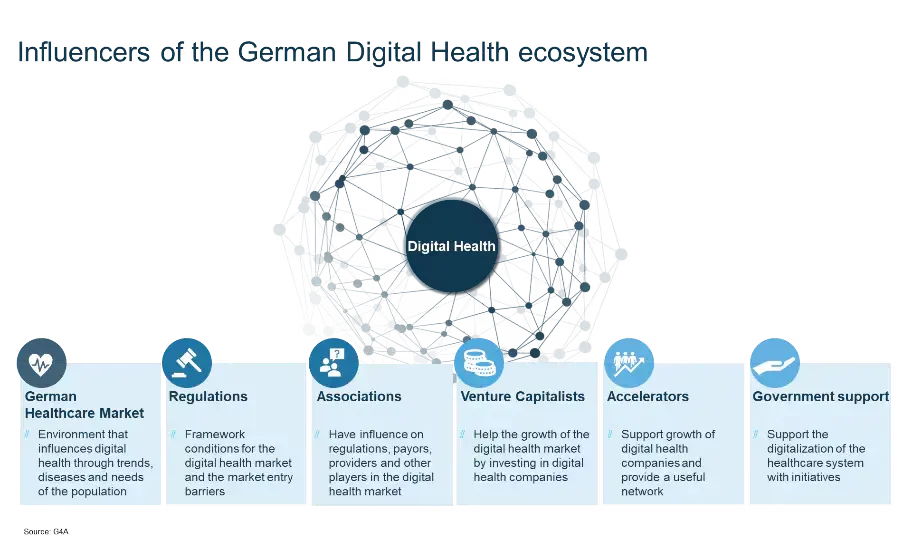
April 16, 2021

As regulations in particular are a critical factor for digital health startups, Germany has already achieved a major step in this area. Since the introduction of the E-Health Act for better patient care through digitalization of the healthcare system in 2015, more and more laws have been passed to strengthen digitalization in healthcare with influence on the digital health market. In particular, the introduction of the Digital Health Act in 2019, with the prescription of digital health applications (DiGAs)2 available to 73 million insured patients3, makes Germany one of the leading countries in the field of digital therapeutics, along with the United States4. Since the introduction of DiGA in Germany, eleven digital health companies focusing on therapeutic areas such as mental health, orthopedics, and cardiovascular disease have been included in the associated DiGA directory on a provisional or permanent basis.5 In addition, further laws introduced in 2020, such as the Patient Data Protection Act and the Hospital Future Act, which focus on the digitization of hospital infrastructure, support the digitization of the entire healthcare industry and enable new opportunities for digital health companies in Germany.6
But there are also European initiatives that support the spread of digital health with a positive impact on Germany. European programs such as EU4Health, Horizon Europe and Digital Europe support investments in the field of a digitalized healthcare system in Europe.7 In addition, initiatives such as the European Health Data Space focus on an efficient exchange of health data in the EU, not only for health care itself, but also for health research on the way to a networked European Health Union.8 Not only regulations, but also accelerators and investors in the form of venture capitalists are crucial influencing
factors for a digital health ecosystem. In Germany, there are so far about 26 accelerators, incubators and innovation hubs supporting digital health companies.9 Most of them are located in Berlin, which is not only a hotspot for accelerators, but also for digital health startups and venture capitalists investing in the digital health space. In 2020, 62 digital health startups were located in Berlin, of which about 83% were founded after 2013.10 Based on internal researches, there are about 79 venture capitalists in Germany that had an investment in digital health, showing a founder-friendly landscape for digital health startups.11 In general, Germany is driving positive changes for a conducive ecosystem for digital health startups. Further regulations planned for 2021, such as the Act for the Digital Modernisation of Care and Nursing, with the expansion of digital health not only in the form of DiGA, but also with the introduction of digital care applications (DiPA's) for people in need of care with the outlook for prescription, will support Germany's overall digitalization strategy.12